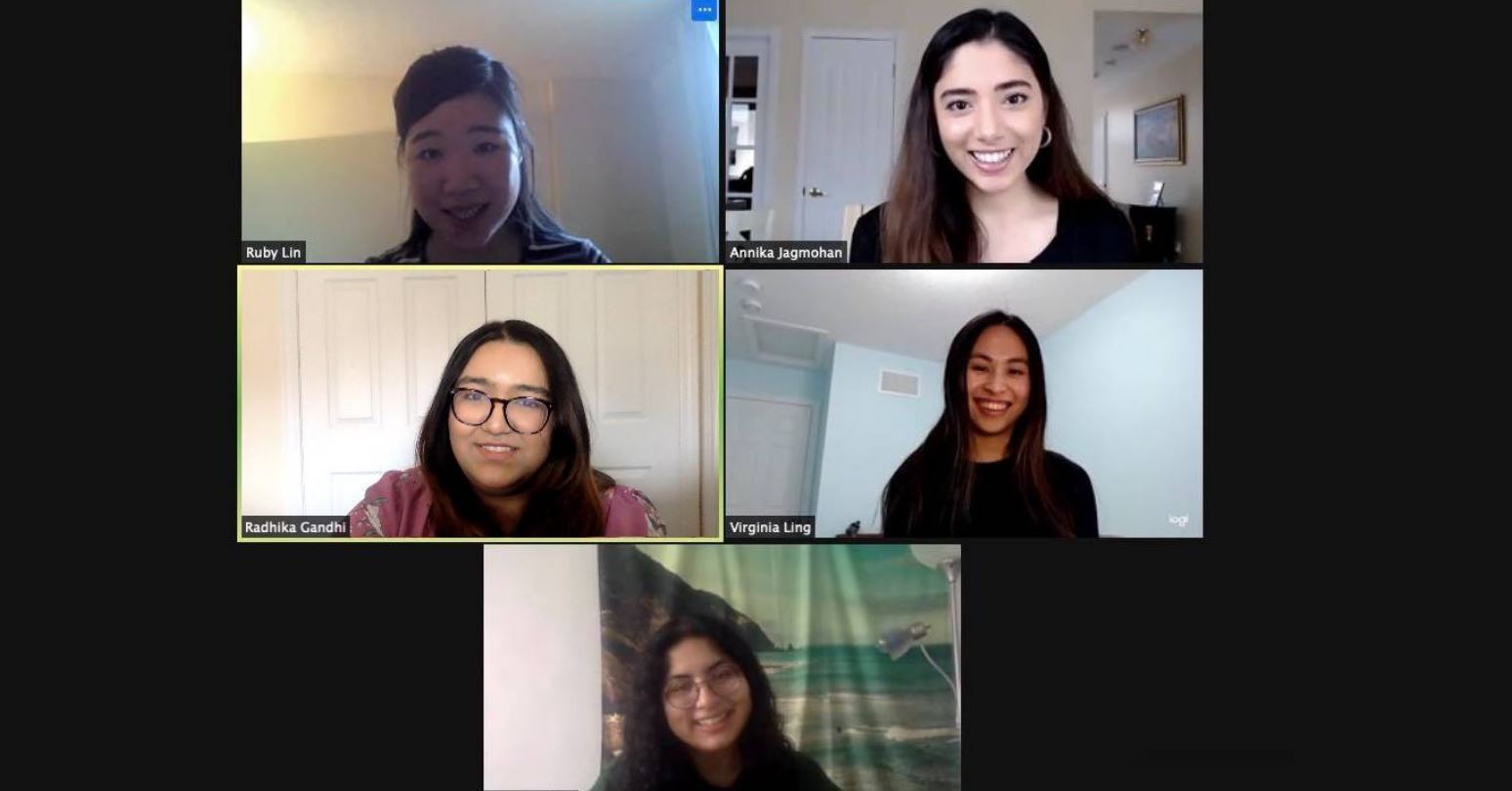Faced with domestic chores, and child or elder care, plus managing a full workload all from home, Canadian women are burning out during COVID-19. And they’re leaving the workforce in alarming numbers.
But an Ivey HBA team’s proposal to reduce employee stress, keep women in the workforce, and champion women’s equality is among 10 finalists in a government-funded program that helps students address the challenges of the pandemic. Three winning proposals will be chosen through an online vote that runs from now until Friday, March 26. (Click here and scroll down to TEAM FWP to vote for the Ivey submission.)
The three finalists will receive funds to further develop and implement their solutions, and have a chance to pitch their ideas before a panel of judges to choose the ultimate winner at a live online event March 31.
The Flexible Work Program proposal was developed by Virginia Ling, HBA ’20, Annika Jagmohan, HBA ’19, MSc International Business & CEMS MIM Candidate, Ashmeet Siali, HBA Candidate, Ruby Lin, HBA ‘21, and Radhika Gandhi, currently completing her MSc in Population Medicine at the University of Guelph. The team has beat out more than 2,900 students in making it to the top 10.
As outlined in the team’s submission video, the impact of the pandemic on women has been extraordinary:
- More than 40 per cent of the workforce now works from home (WFH). Approximately 70 per cent are experiencing burnout;
- The effects are disproportionately felt by women, and especially working mothers, who must balance a full workload and double up on home chores and childcare – an effect known as double-burden syndrome; and,
- As a result, Canada has seen a 30-year low in women’s employment, with 20,000 women leaving the workforce in six months, and one-in-three women having considered leaving the workforce,
“That means decades of hard-won progress has been wiped out in a matter of months,” Siali, a spokesperson for the team, said.
The proposal promotes effective and sustainable flexible work practices among Canadian businesses to improve women’s lives – both at home and at work. The program incentivizes employers to improve flexible work arrangements through tax credits and funding, support and best practices, plus a yearly assessment and review.
Flexible work arrangements differ from the traditional nine-to-five workday or Monday-to-Friday workweek. They can include flexible hours, compressed time, and job sharing, allowing employees to take control of their schedules and effectively balance their competing priorities.
“Our team is comprised of all women,” said Siali. “And we think all young women face the problem of trying to figure out how they're going to balance career and family moving forward. Just realizing how daunting the problem is for so many women today was truly remarkable. It really motivated us to do something about it.”
Announced in June 2020, the Canada Comeback Challenge is part of a $9-billion federal support package for students to generate solutions for the social and economic challenges of the global pandemic.



